Life of a woman marine engine cadet
What is it like to study marine engineering and then to begin your career working onboard ships? What are the additional challenges for a woman marine engine cadet joining and working in this industry. In this article Monica Nancy Candny shares her career so far and gives advice to others starting a career in marine engineering.
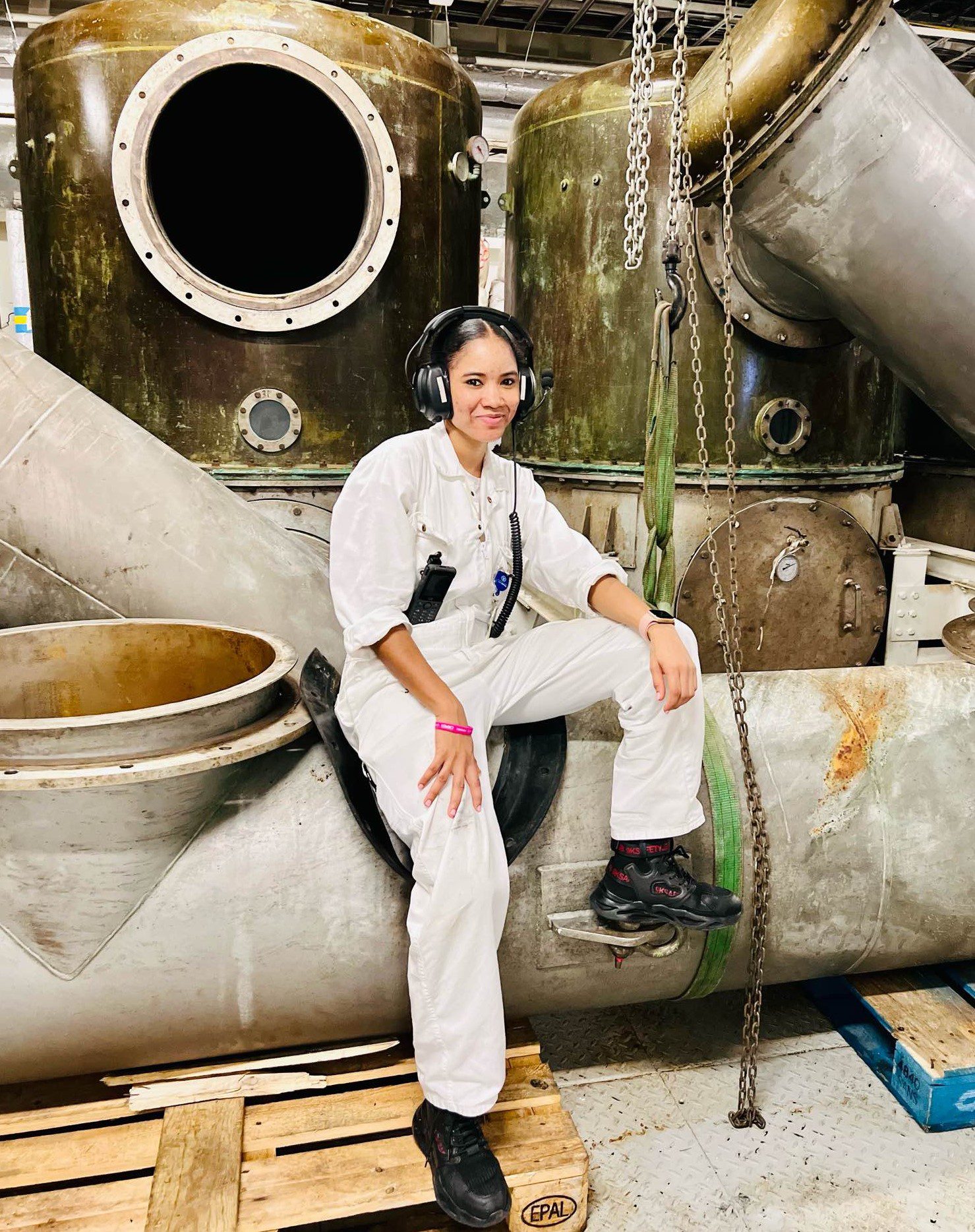

Working as an engine cadet for Royal Caribbean International – meet Monica Nancy Candny
Background
Were you interested in science and engineering/ how things work when you were a child?
When I was growing up, I never dreamt of becoming an engineer one day.
Was there anyone in your family who guided you towards engineering or towards working at sea?
I had no one in my family as an engineer or marine engineer. However, I was fortunate to get guidance from people who are not related. From the onset it has always been people I encountered through social media and also some lecturers who have kept encouraging me through this journey.
Why did you decide to study marine engineering rather than another type of engineering?
I chose marine engineering because my country has very few women marine engineers, so I wanted to fill that gap when I had the opportunity.
Also, marine engineering covers a vast engineering field which gives you an upper hand compared to other types of engineering.
Inspiration
Has there been a particular person who has inspired you at work?
These three people have been a great inspiration to me as a woman marine engine cadet.
Perez Navas Jennymar who works for Royal Caribbean International on Harmony of the Seas.
Lori Stephens who is a Captain on Logos Hope. Logos Hope is the world’s largest floating bookfair.
Mercy Brew at Bernhard Schulte Shipmanagement (BSM).
Is there anyone else who has been an inspiration?
Helle Andsbjerg my mentor from Women Offshore.
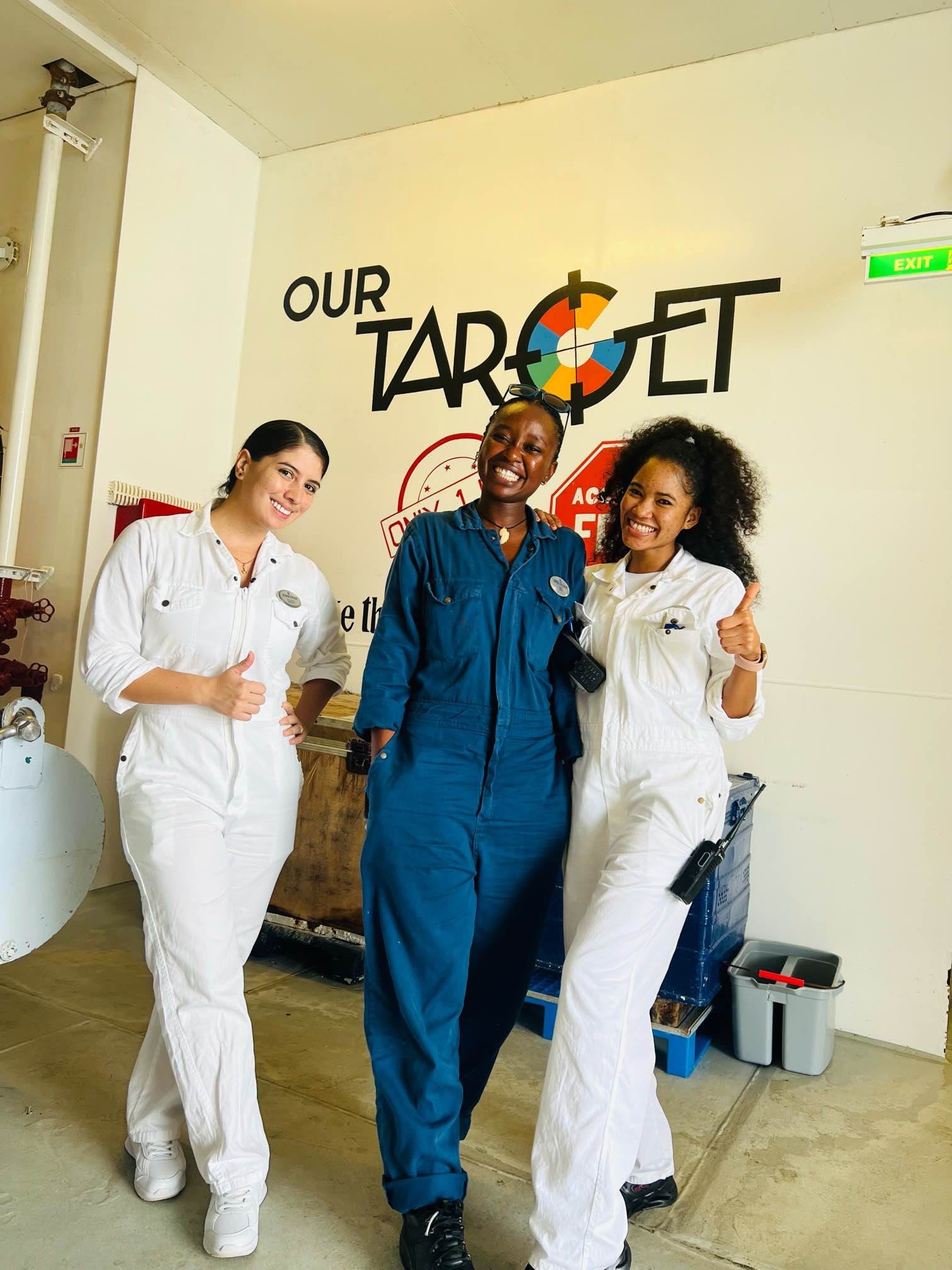

Internships and their value for a woman marine engine cadet
You have worked as an intern for different organisations. Why do you think internships are valuable to a young engineer?
As a marine engineer, internships are very important to me in my field of study.
I had the chance to do an internship with the Ghana Navy (Eastern Naval Command, Tema) and APM Terminal in Liberia while I was a student at university.
Specifically, I had the chance to learn on one of their ships while I was an intern with the Ghana Navy. I gained knowledge about what marine engineers do while they are on board. In the real world, I was able to learn about marine engine systems and operations. It assisted me in getting ready for what I would be doing when I began working at sea.
What are your tips to other marine engineers for finding internships?
There are internship opportunities available to young marine engineers anywhere in the world. You are the one who needs to look for the opportunity. Send letters to potential employers expressing your interest in an internship, and then follow up with emails or in-person visits to demonstrate your sincerity.
How valuable is networking do you think?
Personally, networking has been of great value to me so far in my life and career.
Networking has helped me in diverse ways.
Networking could give you access to career possibilities, professional relationships, career guidance, fresh ideas, and useful information. Building relationships, obtaining a competitive edge in your field, and growing personally and professionally are all facilitated by networking.
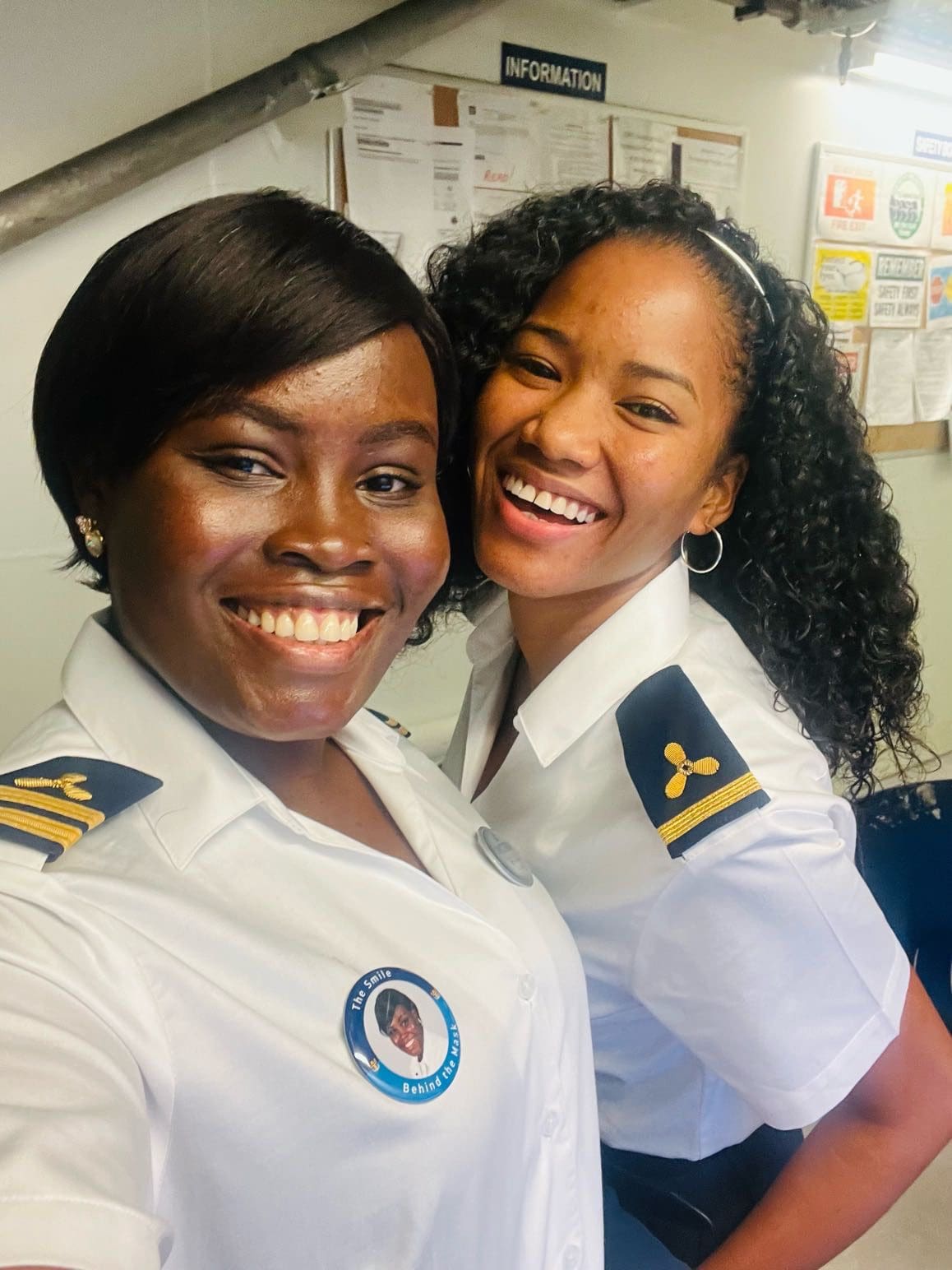

Working at sea
What are the main challenges when working as a marine engine cadet at sea?
The long time away from family can be exhausting.
There are long hours and long shifts.
Depression may result from the tremendous monotony and loneliness that might come with working aboard a ship.
What is easier on dry land?
Doing what you want is easier on land unlike onboard where you have to follow orders diligently.
You have to put your personal life aside while at sea in order to concentrate on your work. If not, you put both your life and the lives of those you work with at danger.
On land you have the advantage of being near relatives, particularly in times of need.
Is your role ever uncomfortable because of heat, cramped spaces, bad lighting etc?
Aside from the engine room being noisy and sometimes there may be heat due to a change in destination, everything is good.
How do you manage working and concentrating when there are other people around, the sea is rough etc?
I do not panic and if I do not know something sometimes, I ask my senior colleagues for ideas. It’s a learning process and you could make mistakes at any point, so it is important to keep focus and learn the right way.
What advice would you give to an engineer who has just started to work at sea? What can they do to adjust as quickly as possible?
Be eager to learn and focus on your goals.
Follow the Cadet Record Book if you are a Cadet.
Ask questions if you do not know.
Be friendly and a friend to everyone.
Read manuals about the machinery.
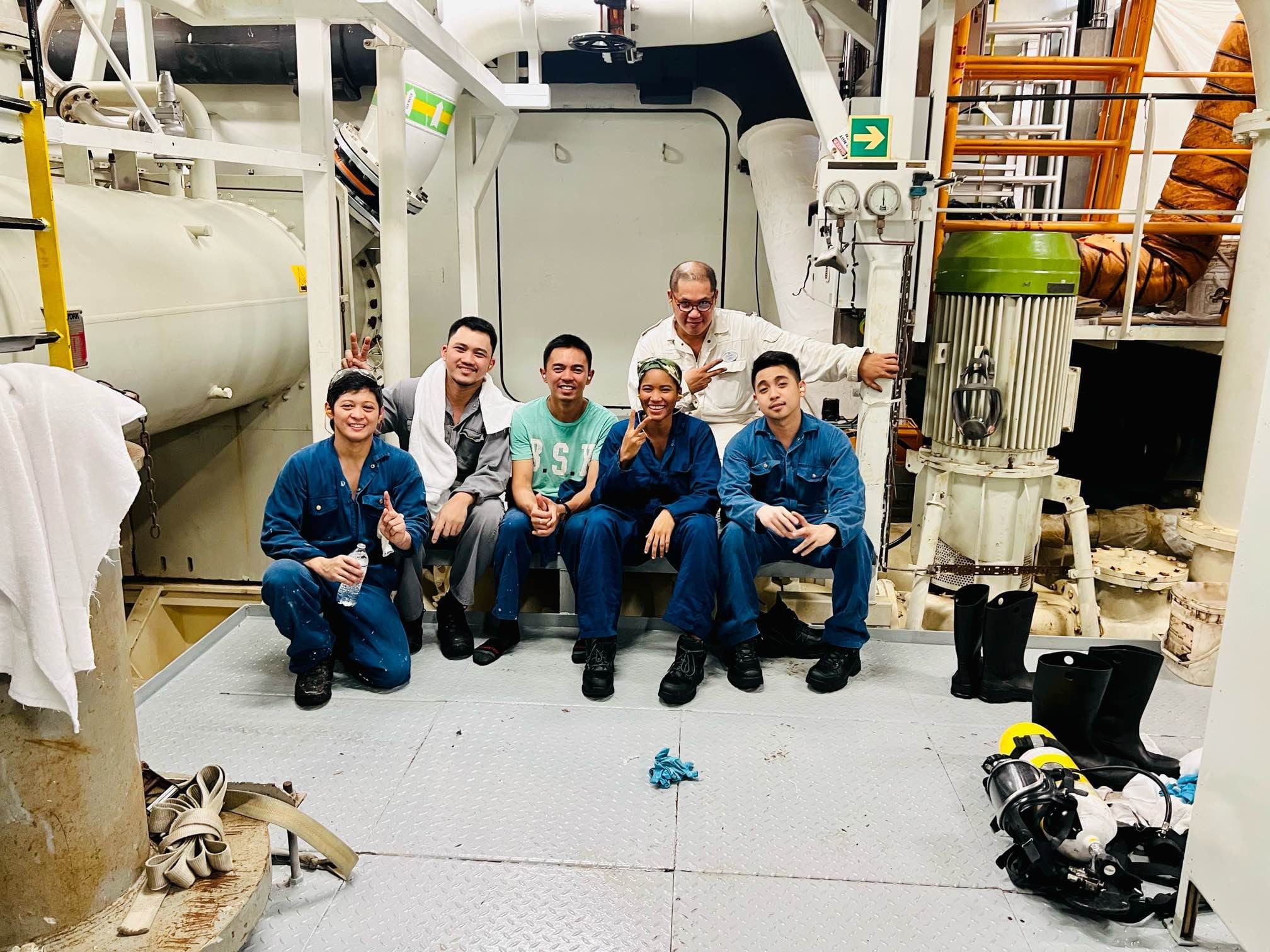

Typical week as a Marine Engine Cadet
Can you describe the type of work for a marine engineer/engineer cadet in their first job?
As an Engine Cadet you do not have one particular job. Every day comes with different duties as per instructions from the Staff Chief Engineer.
These are things you will be involved in assisting:
second Engineers with overhauling;
the foreman team for cleaning the Engine Room;
the staff Chief Engineer for the Fire systems tests and how to operate it in a case of an emergency.
You will also do running hours of all the machinery in the engine room, or anything related.
What type of shift system do you work? What do you do when you are on the ship but not working?
We have four rotational work shifts and I have worked with all the shifts during my cadetship. Our shifts are as follows:
00:00 – 04:00
04:00 – 08:00
08:00 – 12:00
12:00 – 16:00
When I am not working, I usually go to the gym, read equipment manuals, and write a lot of motivational speeches to motivate myself.
Women working at sea
What advice would you give to women marine engineers who are about to start their first role?
There are three main pieces of advice.
Have self-value for yourself as a woman and others will value you.
Respect others so they can respect you as well.
Be willing to learn at all times and be hard-working.
What are your tips for feeling confident and not out of place?
By having passion for what you are doing. Also, by learning all the time and be always willing to help.
Your level of confidence will increase with your knowledge.
The number of women in all types of engineering is increasing. How can this be helped?
By any company or organisation employing more women in the field, offsite and offshore and also in managerial positions both onshore and offshore.
How key is it to have a mentor supporting each individual engineer?
It is important for an engineer to have a mentor so they can give more ideas about the field. In addition to offering direction, inspiration, emotional support, and being a role model, a mentor may also supply mentees with information regarding their own career paths. Setting objectives, making connections, and pursuing career exploration can all be aided by a mentor.
Do you have any advice about PPE and uniform for women? (In terms of fit, comfort etc.)
PPE should be put on properly. PPE is not worn to be fashionable, instead we put them on to prevent unforeseen accidents. If you feel uncomfortable in your coverall or other PPE, you should report it for change.
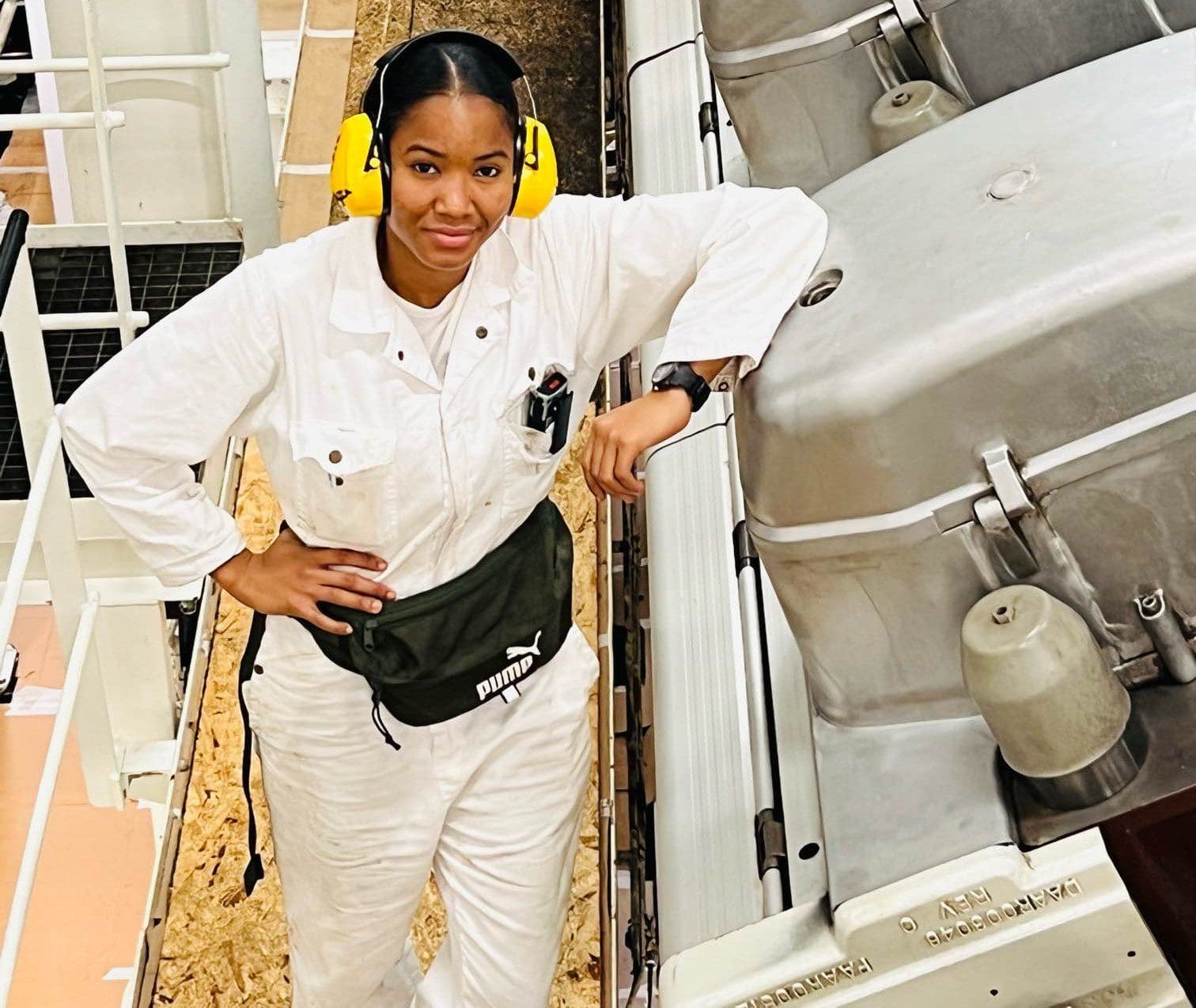

Continuing to learn after university
How can you continue to learn as an engineer after you leave university?
The industry is growing fast with new technologies. You have to keep yourself updated with new inventions and developments all the time. Upgrade yourself by taking advanced programmes to make yourself relevant in the industry.
What are the different ways of growing as an engineer?
As an engineer, growth happens outside your comfort zone. You have to stretch yourself out of your comfort zone to achieve growth. Teach what you learn and ask questions if you are not sure.
Challenge yourself always to take up new projects and do not be scared.
Keep reading different manuals, so that you know how to troubleshoot in case there is a problem.
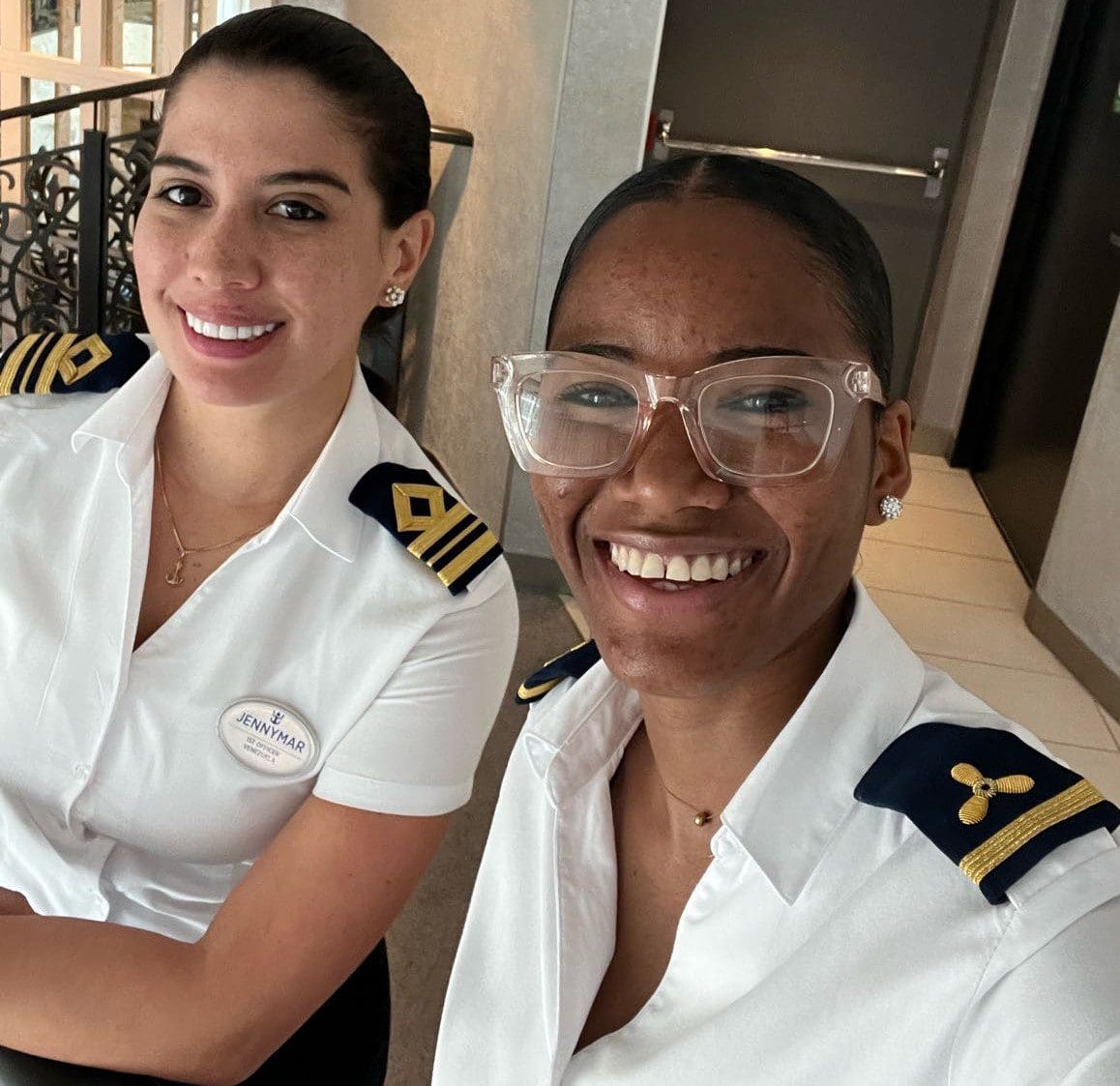

The future
As an African woman and engineer working as a marine engine cadet what are your hopes for the future?
My hope for the future is to put my country, Liberia, and continent on the map of the world.
I also hope to encourage and motivate more women into the engineering field.
I would like to help women who have the passion and vision to sail or to work offshore.
About the author, Monica Nancy Candny, Marine Engine Cadet
Monica Nancy Candny grew up in Liberia and has studied in Liberia and Ghana. She has worked internationally.
Monica works as an Engine Cadet at Royal Caribbean International. She has worked on various vessels, such as Independence of the Seas, Cestos Tug of Svitzer in Liberia, and Harmony of the Seas. She is responsible for maintaining and operating the engine room equipment, as well as ensuring the safety and efficiency of the ship’s operations.
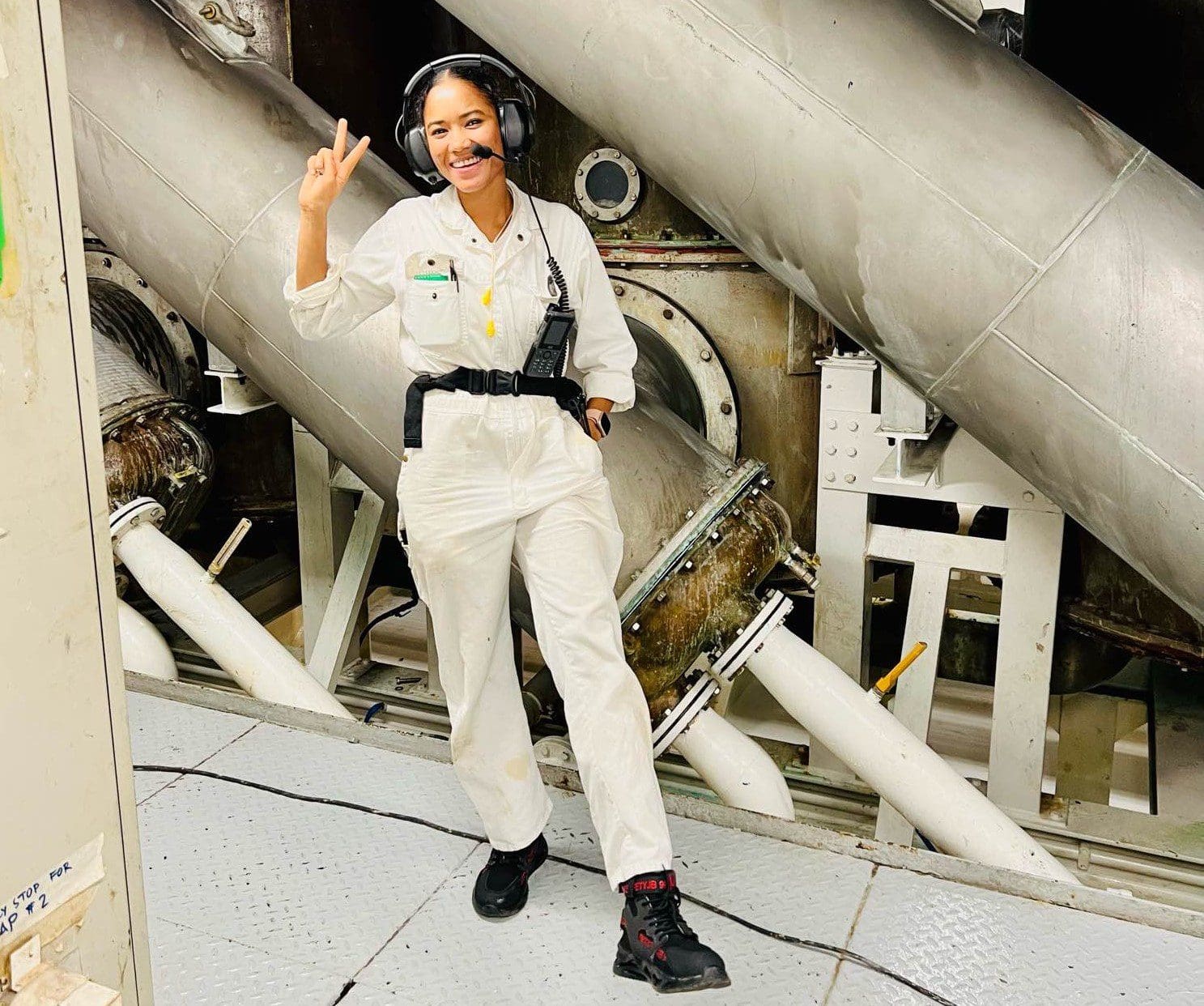

Further reading about marine engineers and engine cadets
Life as an unseen but vital Marine Field Engineer


Responses